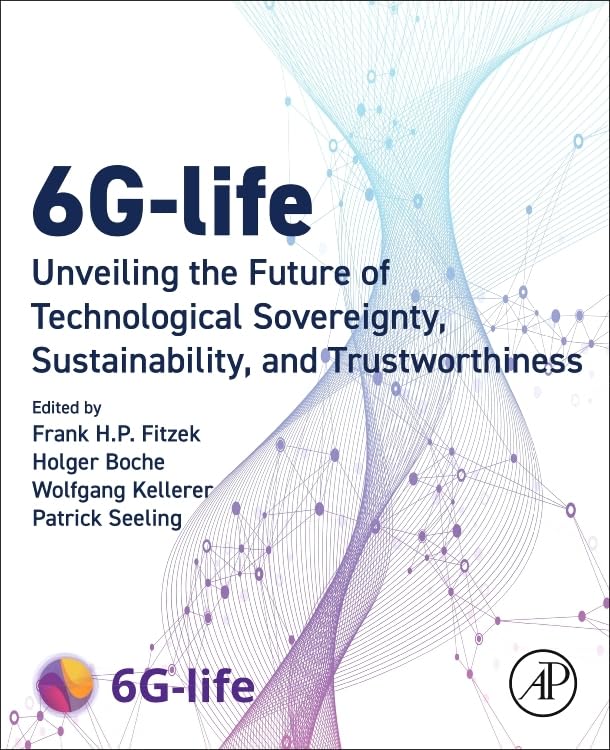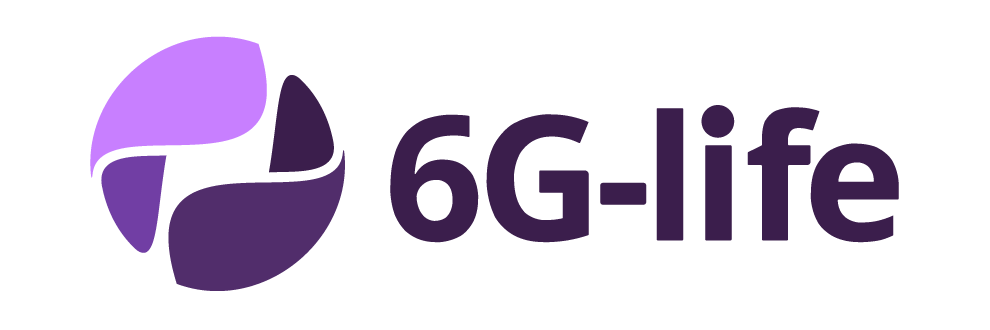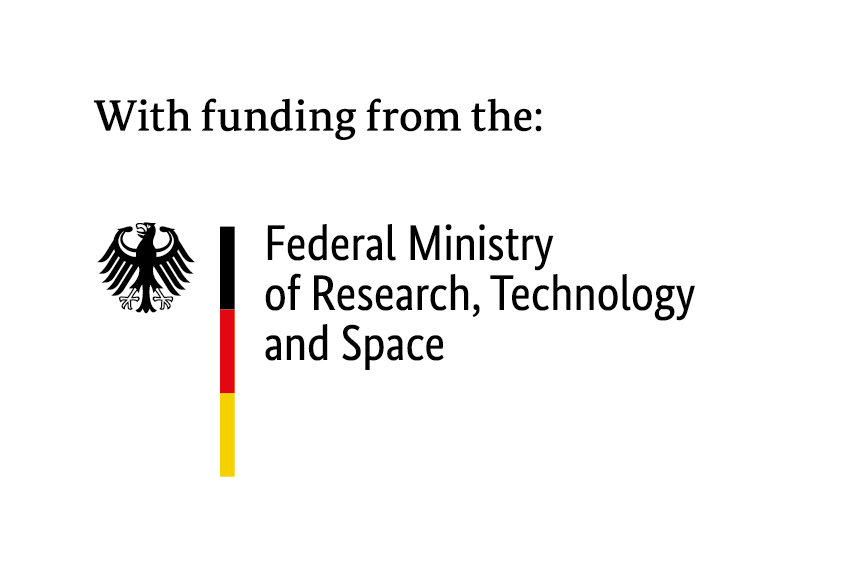The 6G-life transfer hub puts cutting-edge 6G communication technology research, focusing on cooperative mobile robotics in industry and medicine, into practice through the Universities of Excellence in Dresden and Munich. This transfer is achieved in collaboration with industry partners and via our own incubator, launchhub42.
Unveiling the Future of Technological Sovereignty, Sustainability, and Trustworthiness.
19 startups in 6G-life,
each with their own unique vision and drive to innovate.

6G-life: Unveiling the Future of Technological Sovereignty, Sustainability, and Trustworthiness
With both fundamental insights and practical applications, this book is an essential guide for researchers, engineers, and students.
Motivation
Why did we start 6G-life?
6G-life will provide new approaches for sustainability, such as the Post-Shannon theory, to decouple the relationship between data volumes and energy consumption as far as possible. 6G-life will provide new concepts for security (quantum communication, post quantum security and protocols) and for resilience (artificial intelligence methods to control in-network computing, resilience against denial-of-service attacks). Current latencies in communication networks are still too high for critical use cases. 6G-life will provide solutions for this.
Vision
What we want to achieve
6G-life will significantly stimulate industry and the startup landscape in Germany through positive showcase projects and thus sustainably strengthen digital sovereignty in Germany. Test fields for two use cases will drive research and economic stimulation. The goal is to create at least 10 new startups through 6G-life in the first four years and to involve at least 30 startups. 6G-life will significantly contribute to the creation of a skilled workforce. In addition, 6G-life has set itself the task of accompanying the population in the digital transformation and thus making a contribution to society.
Structure
Communication Networks
Communication
Communication network architectures in 6G-life are numerous such as:- Cellular networks with Campus and HAP extensions
- Tactile Internet including Quantum Communication
- Body Area Networks
Methods
6G-life is investigating novel methods for communication networks that are based on:- Post Shannon Theory
- AI for network control and new services
- Protocol and Codec Design for Human-Machine Collaboration
Software
Communication networks and equipment are nowadays dominated by Software. 6G-life works on:- In-network computing and ORAN
- 6G application in virtual worlds (digital twins and holograms)
- Low latency and energy compiler and OS design
Hardware
Novel hardware concepts for future needs and applications will be introduced in 6G-life:- New materials for robotics and humans in virtual worlds
- Joint Sensing and Communication
- Flexible energy saving
Activities
Let’s build the future of 6G together
6G-life creates spaces where research, innovation and society meet. Through public events, workshops, exhibitions, panels and educational initiatives, we promote the exchange of knowledge and dialogue between science and citizenship. Our goal: to make 6G a safe, sustainable and affordable technology for everyone.
Partners
6G-life Hub
The network of partners is continuously extended.
“Knowledge builds bridges”
TU Dresden is one of the top universities in Germany and Europe: strong in research and considered first-rate with respect to the range and the quality of the study programmes it offers, it is also closely interconnected with culture, business and society.
As a modern comprehensive, multi-discipline university and with its 18 faculties in five schools it has a broad and diverse scientific spectrum that only few other universities in Germany are able to match. The large campus family of the TU Dresden is comprised of 32,400 students and approximately 8,300 employees – among them 600 professors. With 121 degree courses the TU Dresden offers a full range of studies, as a basis for interdisciplinary learning and research.
Visit TU Dresden

“We inspire, promote and develop talents”
The Technical University of Munich (TUM) is one of Europe’s top universities. It is committed to excellence in research and teaching, interdisciplinary education and the active promotion of promising young scientists. The university also forges strong links with companies and scientific institutions across the world.
TUM was one of the first universities in Germany to be named a University of Excellence. Moreover, TUM regularly ranks among the best European universities in international rankings. As a leading entrepreneurial university, we are a site of global knowledge exchange, shaping the future with talent, excellence and responsibility.



